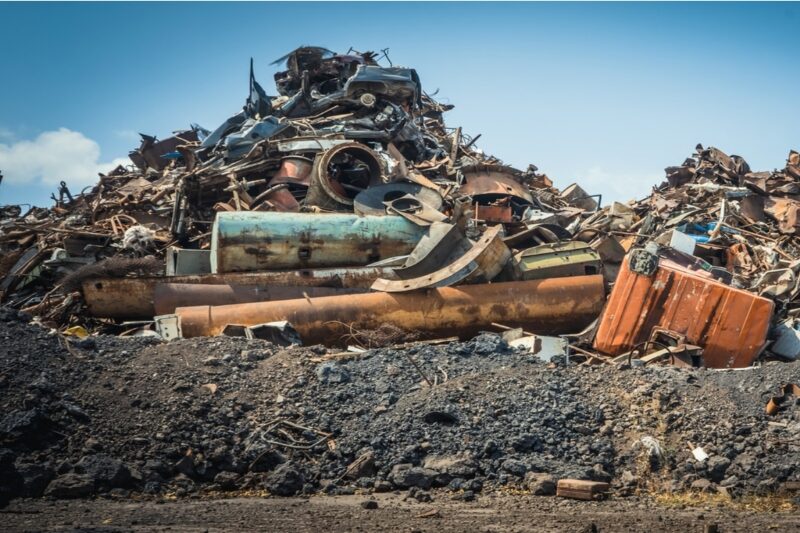Thousands of residents – mainly youths – have lost their jobs because of the indefinite prohibition on metal scavenging activities imposed by Borno State governor Babagana Zulum on Monday, July 10, across all 27 local government areas.
Zulum told journalists in Maiduguri, the state capital, that the ban would help to prevent more scavengers from being killed by Jamā’at Ahl as-Sunnah lid-Da’way Wa’l-Jihād (JAS), better known as Boko Haram, and Islamic State West Africa Province (ISWAP) insurgents.
In the past few years, he said, about 1,000 scavengers, searching for scrap metal mainly on the outskirts of local government areas, had been killed.
The ban would also halt the theft of metal from private properties and public enterprises, including streetlight poles and telecommunication company assets, among others.
“These acts of metal scavenging can be considered as economic sabotage against both the federal and state governments.”
Zulum said the government would “thoroughly investigate these illicit activities” because the state had lost valuable properties worth billions of naira in the past five years.
He said he was concerned about the destructive behaviour exhibited by the scavengers who had caused substantial damage to both public and private properties.
The ban included all forms of informal and unregulated metal recovery activities, including the dismantling, collection and transportation of scrap metals.
In the past, there had been several explosions in markets and other public places because improvised explosive devices (IEDs) were among the scrap metal.
But, for those who relied on metal scavenging, Zulum’s announcement came as a major blow because they depended on it for their livelihoods.
Muhammed Bukar, who has been collecting scrap metal for more than five years, said: “We are not happy about the governor’s decision. I was earning about ₦2,000 a day. It was the only way I could make money. Apart from my family, I also take care of my parents. The government will have to help us find other jobs. We don’t have any other options. We depended on scavenging to bring in money and now that has been taken from us.”
Muhammed Mustapha said: “I have been in the scavenging business for the past two to three years. If we are not allowed to continue our businesses, we will not have any other way to survive.”
Jidda Mohammed Ajaji, an economist from the University of Maiduguri, said: “Scavenging was a good job for a lot of people, mainly youths. It benefited many people. Some earned anything from ₦2,000 to ₦5,000 a day. They were able to take care of their families, pay school fees and buy essential items. It also helped to keep our environment clean.
“Instead of banning it outright, I believe the government should create an owner company that would manage the buying and selling of scrap metal. There would be oversight on where the scavengers were getting the metal and they would still make money. This would also put an end to youngsters stealing metal items belonging to private and public entities.
“It can be dangerous work, not only for the scavengers but also for those who buy the scrap metal. Last year, a batch of scrap metal contained an IED which went off in a market, injuring buyers and sellers.”
ZAINAB ALHAJI ALI






